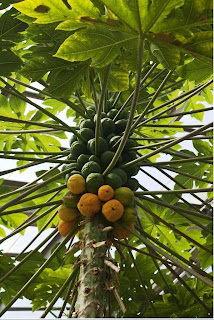And sweet little 2 year old sister Karyn… what a doll… with a gaping wound on her leg that is finally healing, probably after an infection and subsequent treatment with the wrong antibiotic… which leads me to the point of this blog…
Medication given out like candy… improperly managed… and frightfully dosed with as many as 5-10 medications at a time… just in case it’s the common cold… just in case its malaria… just in case it’s a bacterial infection… and to top it off… let’s throw in a mix of pain-killers… take your pick… why is this okay?… a country so desperate for healthcare… they will “take” anything they can get… and where is the medication coming from?... where is it manufactured?... hmm?
The frustration is mounting… but I knew this before I came to Tanzania… but the reality, when faced with it on a daily basis is frightening… I have asked myself the same question every day for 5 months… what is the point?... does Tanzania or Africa actually benefit from foreign aid?… Is there a way to actually help through empowerment so the country can stand on its on two feet one day?... Tanzania only received its independence 40 years ago… it is very much a “developing” country… but developing toward what?
So as a native Oregonian, from possibly the most granola, tree hugging city in North America--Portland, I admit that I am a bit of an idealist… where is the recycling?… even more so, where is the waste disposal system?… how about compostable toilets?… where is the solar power?... where is the bio-gas?... where is the “green” building?… organic farming?... good live music?... I will get off that soap box for now…
As a doctor here, it is impossible to not pay attention to everything that affects health which in turn means you learn about politics, religion, history, infrastructure, technology, business, natural resources, socioeconomics, agriculture, water, human nature, and the value of life… wherever you live on earth…
So for now, I will stop the rant and move forward with eyes and ears open to the truth… I am here to learn and see about the long-term potential to integrate natural medicine, rooted in prevention and education, in Tanzania—where there is profound need and abundant natural medicine resources...
Paving the way for the return to natural medicine in Africa and integration into an otherwise failing medical system here in Tanzania is like trying to move Mt. Kilimanjaro with a shovel… That being said, I am working on doing what I can… I can only hope my colleagues have the opportunity to experience this in the future after more groundwork is done in the village here in Moshi… I am honored to be among one of the many volunteer doctors here… and congratulate all of those in the pursuit to improve global health standards…
moja kwa moja (one by one)…


